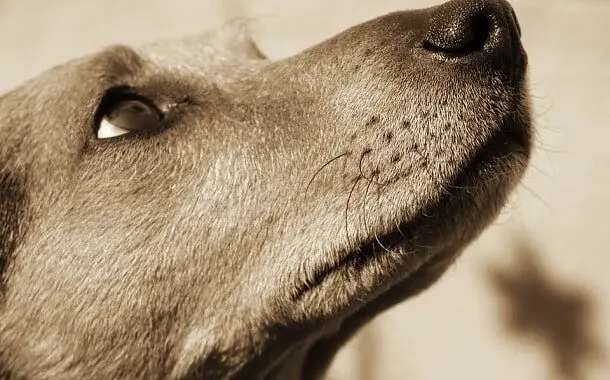How Much Does a Dog Autopsy Cost?
Last Updated on February 15, 2024
Written by CPA Alec Pow | Content Reviewed by ![]() CFA Alexander Popinker
CFA Alexander Popinker
A dog autopsy, also known as a necropsy, can provide pet owners closure and crucial health information. But how much does this procedure cost? Here’s an overview of typical dog autopsy prices.
How Much Does a Dog Autopsy Cost?
The average cost of a basic dog necropsy ranges from $300 to $500. However, prices can range much higher, from $150 up to $1,000 or more depending on the factors involved.
At general veterinary clinics, owners can expect to pay $150-$350 for a basic autopsy with no additional testing. Specialty veterinary diagnostic labs often charge $500-$1,000 due to their advanced facilities and board-certified pathologists.
Quoted prices may or may not include items like disposal fees, cremation services, required transport, or extra diagnostic testing. Be sure to get an itemized estimate of all charges.
According to a response on JustAnswer, a basic examination of the internal organs might cost $90-$300, depending on how long it takes for a probable cause of death to be identified.
Veterinary Medicine at Illinois reports that getting a necropsy done is not expensive, considering all the expert analysis and testing that is included. Prices usually range between $100 and $200.
Itemized Costs of a Dog Autopsy
Dog autopsy costs are often broken down by the individual services performed:
- External examination – $50-$150
- Basic tissue sampling – $100-$300
- Organ dissection – $50-$150 per organ
- Histopathology – $80-$300 per tissue sample
- Toxicology screens – $200-$500
- Microbiology cultures – $70-$200 each
- Additional bloodwork – $100-$300
- Special stains – $50-$200 each
- Final diagnostic report – $50-$300
- Crematory fees – $50-$300
- Service/admin fees – $50-$150
These costs quickly add up, so it’s essential to request an itemized estimate before proceeding. Prioritize the most important diagnostics first if costs start mounting.
Factors that Increase Dog Autopsy Costs
More complex autopsies with extensive analysis can rapidly increase the price. Factors that hike up a dog necropsy’s cost include:
- Multiple tissue samples submitted for microscopy
- In-depth toxicology, cultures, blood panels
- Examination of many organs or body systems
- Biopsies of abnormalities like masses or lesions
- Advanced stains and immunohistochemistry
- MRI, CT scans, or radiographs
- Emergency or after-hours autopsy procedures
- Special handling like biohazard precautions
The veterinary pathologist can help advise which tests are absolutely necessary to establish a diagnosis. This helps control costs.
Let me know if you would like me to expand on any other specific cost details! I’m happy to add more sections related to pricing for dog autopsies.
Factors That Influence Dog Autopsy Costs
Several factors play a role in determining the final price of a canine necropsy:
- Location and clinic: Prices tend to be higher at university veterinary diagnostic labs and private specialist clinics compared to general practices. Urban areas also cost more than rural.
- Pathologist’s credentials: Board-certified veterinary pathologists charge more than non-specialists. Their expertise warrants the higher price.
- Complexity: More in-depth tissue sampling, analysis, and review increases costs. Looking at multiple organ systems or disease processes adds to the necropsy price.
- Additional tests: If cultures, blood tests, histopathology, or other diagnostics are necessary, that adds to the total cost. These extras can be essential for determining the cause of death.
- Disposal fees: Some clinics charge for the final disposal or cremation of remains. Pet owners should ask about these potential fees.
- Itemized pricing: Clinics may charge per tissue sample, imaging, lab tests, and pathologist’s time. This itemization can increase the final bill.
Clearly pricing structures and complexities vary. Pet owners should ask for an estimate and understand exactly what’s included.
You might also be interested in our articles about the cost of pet euthanasia, pet cremation, or pet insurance.
What Does a Dog Autopsy Cost Include?
A standard canine autopsy involves several components. Here are the key services that contribute to the total price:
- External examination: The pathologist performs a full external body exam, documents any abnormalities, significant lesions, or identifying markings. This basic exam is included in most necropsy costs.
- Tissue sampling: Systematic collection, dissection and sampling of organs and tissues is central to the necropsy. Each sample adds incrementally to the cost.
- Laboratory analysis: If cultures or other lab tests (histopathology, blood tests) are needed to diagnose issues, this increases the price. Labs bill the clinic directly.
- Microscopic examination: The pathologist thoroughly examines each tissue sample under the microscope for abnormalities or pathogens. This meticulous review is time-consuming.
- Consultation and report: The pathologist compiles all findings into a full diagnostic report detailing the cause of death. Consultation with the pet owner may also be included.
- Handling and disposal: Prices usually include body storage before and after the procedure, biohazard disposal fees, and basic cremation if requested. Ask your clinic for details.
Understanding these itemized costs provides greater transparency on pricing. Be sure to request a breakdown.
Choosing a Qualified Veterinary Pathologist
 Not all vets perform necropsies in the same manner. When selecting a clinic, consider these tips:
Not all vets perform necropsies in the same manner. When selecting a clinic, consider these tips:
- Look for board-certified pathologists. Their advanced specialty training indicates greater expertise. Ask about a pathologist’s credentials and experience.
- University labs offer cutting-edge diagnostics. Their sophisticated tools and research activities may provide more in-depth analysis. Travel time to facilities may be required.
- Ask trusted vets for referrals. Your current veterinarian likely can suggest reputable clinics and pathologists to conduct the necropsy.
- Compare service options and prices. Get cost estimates from several facilities. Look for itemized price lists to compare transparently.
- Review sample reports. High-quality, detailed reports indicate a meticulous necropsy process and experienced pathologist.
- Consider convenience factors. Choose a facility that accommodates your schedule, location, and timing needs. Shipping deceased pets adds costs.
Do your homework to pick the right pathology team. Their expertise will impact the quality of results.
Alternatives and Considerations for Pet Autopsies
Some pet owners wish to forego a complete necropsy for financial or personal reasons. There are a couple options in lieu of a full post-mortem exam:
- External inspection: An external-only examination provides basic information for about $100-$150. It may miss internal causes of death.
- Organ-specific biopsy: For focused diagnoses, biopsy of a particular organ (liver, kidney, etc) starts around $200. It provides limited scope.
- Wait for factors prompting necropsy: If the pet’s death seems easily explained, owners may opt to forgo testing until certain diseases emerge repeatedly in related animals.
- Crowdfund the costs: Setting up a GoFundMe campaign or similar outreach can offset necropsy costs. Friends, family, and strangers may donate to the cause.
- Pet insurance pre-approval: Some insurance plans pre-approve coverage for necropsy costs if they will provide actionable health data on other insured pets. Check your policy details.
Remember, a necropsy provides the most complete diagnostic picture and often brings owners a sense of closure. If the budget allows, it is generally recommended. But the above options may offer alternatives when needed.
Final Words
While saying farewell to your pet is difficult, a necropsy can provide answers and direction. Pet owners gain peace of mind knowing what led to their dog’s passing – or equally importantly, what didn’t cause it. Crucial findings about inheritable diseases or contagious risks inform care for other pets. For many owners, the closure and planning benefits outweigh the costs.
When faced with questions around the death of a beloved dog, a thoughtful necropsy delivers valuable insights. While variable in price, this procedure remains one of the most helpful tools we have to protect living pets.
Frequently Asked Questions
Is it worth doing a necropsy on your pet?
In most cases, yes. A necropsy is the best way to determine the cause of your pet’s death. The findings give pet owners a sense of closure and help them understand if the death was preventable or caused by hereditary issues.
This informs care for other pets. Necropsy results may prompt improved health monitoring, vaccinations, or breeding decisions to protect animals. While the cost can be difficult during emotional times, the long-term benefits make necropsies a worthy investment for most pet owners.
What is the difference between autopsy and necropsy?
The terms are often used interchangeably. Technically, an “autopsy” refers to examining a human body to determine cause of death, while a “necropsy” describes the same procedure for an animal. But in practice, necropsy is more commonly used for animal post-mortem examinations.
The processes involved are similar – methodical external and internal examination of tissues and organs to uncover abnormalities and disease. Whether called an autopsy or necropsy, this diagnostic procedure provides important answers for veterinarians and pet owners.
Can a vet do an autopsy on a dog?
Yes, veterinarians can perform autopsies/necropsies on dogs to uncover the root cause of death. However, board-certified veterinary pathologists have more advanced specialty training specifically in performing animal autopsies and interpreting results.
Large veterinary diagnostic labs usually employ these specialist pathologists dedicated solely to necropsies. General practice vets have the skills to conduct basic autopsies, but for more complex cases, a veterinary pathologist is best suited to perform the necropsy and diagnostic testing. Connect with your vet for their recommendation based on your pet’s situation.



Leave a Reply
Want to join the discussion?Feel free to contribute!